Contents
- 1 Causes of Bladder Incontinence During Period
- 2 Bladder Incontinence Symptoms to Watch Out For
- 3 How To Manage Bladder Incontinence During Period?
- 4 Frequently Asked Questions
- 5 What Is Bladder Incontinence During Period?
- 6 Causes of Bladder Incontinence During Period
- 7 Bladder Incontinence Symptoms to Watch Out For
- 8 How To Manage Bladder Incontinence During Period?
- 9 Frequently Asked Questions
Causes of Bladder Incontinence During Period
There are two main reasons why you might experience bladder incontinence during your period, both related to changes happening in your body:
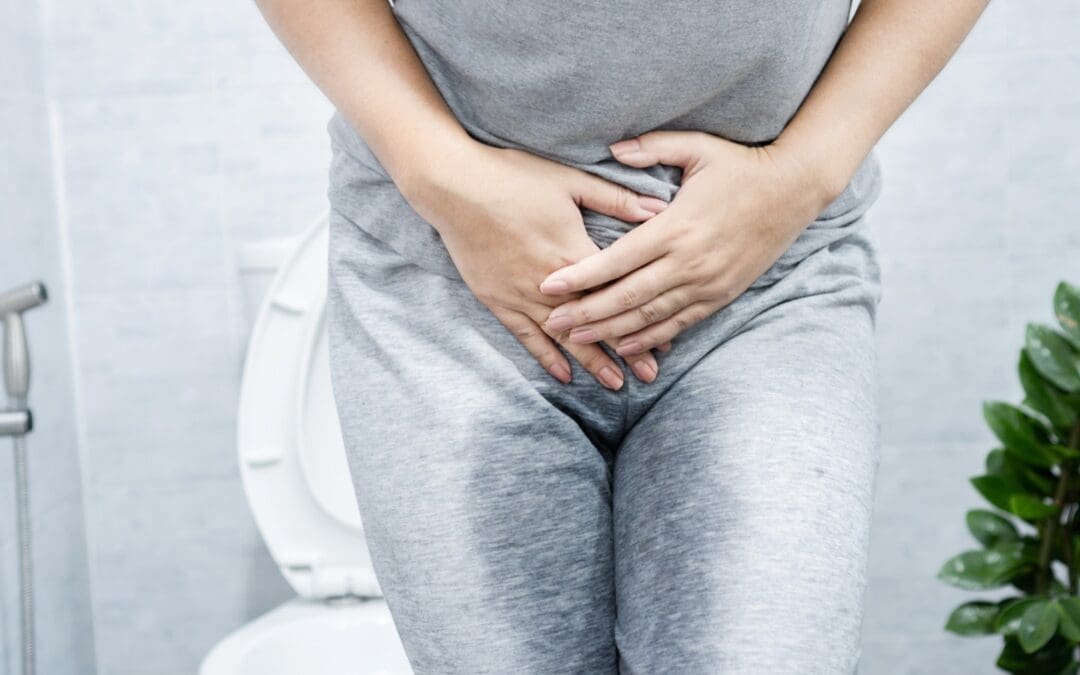
1. Hormonal Fluctuations: During your menstrual cycle, your hormone levels fluctuate. One key player is estrogen, which helps keep your pelvic floor muscles strong and supportive. When estrogen levels drop around the time of your period, these muscles can weaken. Weakened pelvic floor muscles have difficulty controlling your bladder, especially when there’s increased pressure in your abdomen. This pressure can be caused by things like coughing, sneezing, laughing, exercising, or even just standing for extended periods.
2. Period Products: In some cases, using tampons might contribute to bladder leakage. Tampons are inserted into the vagina, which sits right next to the urethra (the tube that carries urine from your bladder). While uncommon, tampons, particularly high-absorbency ones inserted too low, can put slight pressure on the urethra. This added pressure, combined with weakened pelvic floor muscles due to hormonal changes, can lead to leaks.
Other Possible (but less likely) Causes:
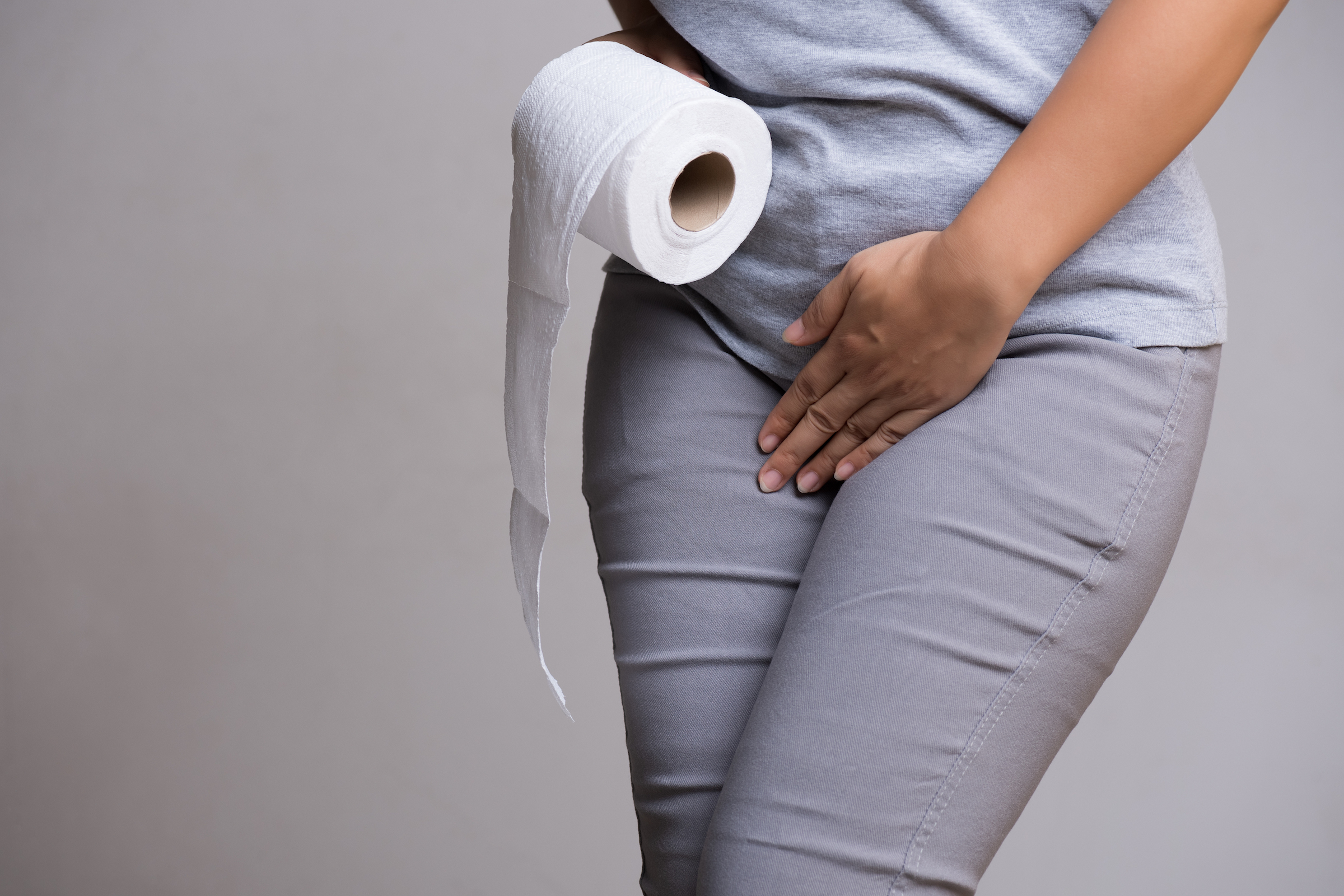
- Urinary tract infection (UTI): While UTIs are more likely to cause frequent urination and burning during urination, they can sometimes also lead to incontinence.
- Underlying medical conditions: In some rare cases, bladder incontinence during your period could be a sign of an underlying medical condition like pelvic organ prolapse (weakening of pelvic floor muscles that can cause organs to shift).
Bladder Incontinence Symptoms to Watch Out For
Bladder Incontinence During Periods can manifest in various ways. Knowing the symptoms can help you identify and manage the condition effectively:
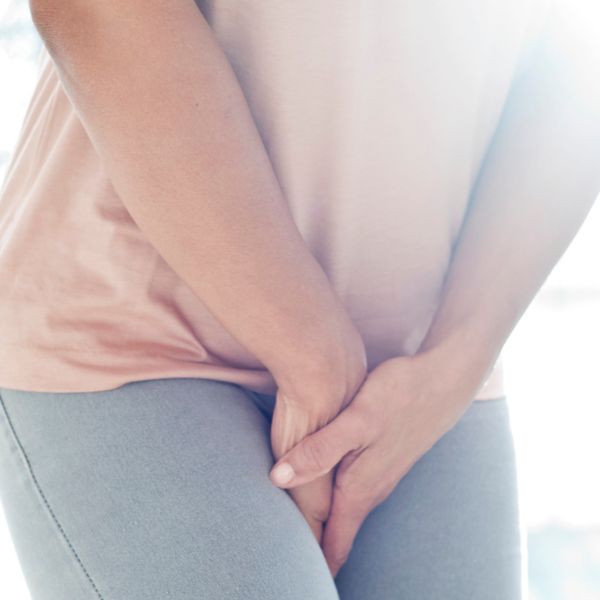
-
Urinary Leakage: Accidental release of urine, ranging from small dribbles to complete emptying of the bladder.
-
Urgency: Sudden, intense urge to urinate that may be difficult to control.
-
Frequency: Needing to urinate more often than usual, even during the night (nocturia).
-
Incomplete Emptying: Sensation of not fully emptying the bladder after urination.
-
Urinary Tract Infections (UTIs): Recurrent UTIs may indicate underlying bladder issues.
-
Emotional Impact: Anxiety, embarrassment, or avoidance of social situations due to fear of leakage.
How To Manage Bladder Incontinence During Period?
Here are some effective strategies to manage bladder incontinence during your period:

1. Strengthen Your Pelvic Floor:
Kegel exercises: These exercises target your pelvic floor muscles, which play a vital role in bladder control. Regularly performing Kegels can significantly improve incontinence symptoms. Aim for several sets of Kegels (contracting and relaxing your pelvic floor muscles) throughout the day.
2. Bladder Training Techniques:
Timed voiding: This involves urinating on a schedule, even if you don’t feel a strong urge. Gradually increase the time between bathroom visits as you gain control.
Double voiding: After urinating, wait a few minutes and try to urinate again. This helps ensure your bladder is completely emptied and reduces the risk of leaks.
3. Lifestyle Modifications:
Maintain a healthy weight: Excess weight puts extra pressure on your bladder, worsening incontinence. Aim for a healthy weight through diet and exercise.
Manage fluid intake: While staying hydrated is important, avoid excessive fluids, especially diuretics like caffeine and alcohol, which can irritate your bladder and increase urgency.
Empty your bladder before bed and activities: Going to the bathroom before bed and before activities that might trigger leaks (exercise, going out) can help prevent accidents.
4. Dietary Adjustments:
Limit bladder irritants: Certain foods and drinks can irritate your bladder and worsen incontinence symptoms. Consider reducing your intake of coffee, tea, soda, spicy foods, and acidic fruits.
5. Menstrual Product Choices:
Experiment with different products: If you suspect tampons contribute to leakage, try switching to pads or a menstrual cup. Using lighter absorbency tampons positioned correctly can also help. Consider consulting a healthcare professional for guidance on choosing the right menstrual product for you.
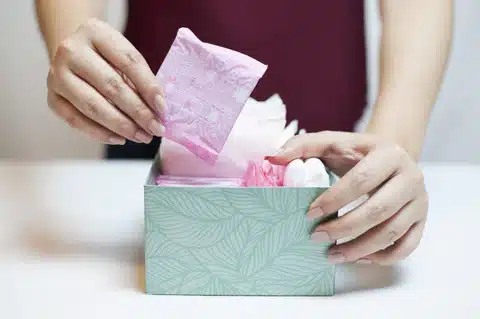
6. Management During Periods:
Bladder liners: For light leaks, using pantyliners can absorb minor dribbles and provide a sense of security.
Double up on protection: During heavy flow days or activities that might trigger leaks, consider using both a pad or menstrual cup and pantyliners for added protection.
Frequently Asked Questions
How can bladder incontinence be managed during menstruation?
Managing bladder incontinence during menstruation involves paying attention to nutrition, staying hydrated, doing pelvic floor exercises, taking regular bathroom breaks, using absorbent products, and seeking medical advice. These strategies help effectively manage symptoms and maintain quality of life while dealing with bladder incontinence during periods.
Can bladder incontinence worsen during menstruation?
Yes, bladder incontinence can worsen during menstruation due to hormonal fluctuations and increased pelvic floor strain. Managing bladder incontinence symptoms becomes crucial during this time to minimize discomfort and inconvenience.
Are there specific exercises to help with bladder incontinence during menstruation?
Pelvic floor exercises, also known as Kegel exercises, can help strengthen the muscles that control urination, thereby improving bladder control and reducing incontinence episodes during menstruation. Consistent practice of these exercises is beneficial in managing bladder incontinence symptoms.
Bladder incontinence during periods is when some women accidentally leak urine while on their menstrual cycle. This can happen because of hormone changes, more pressure on the bladder, or muscle changes in the pelvic area during that time. It’s important to talk about this issue because it can really affect a woman’s life, making her feel uncomfortable or embarrassed. In this post, we’ll look at why this happens and share tips on how to deal with it.
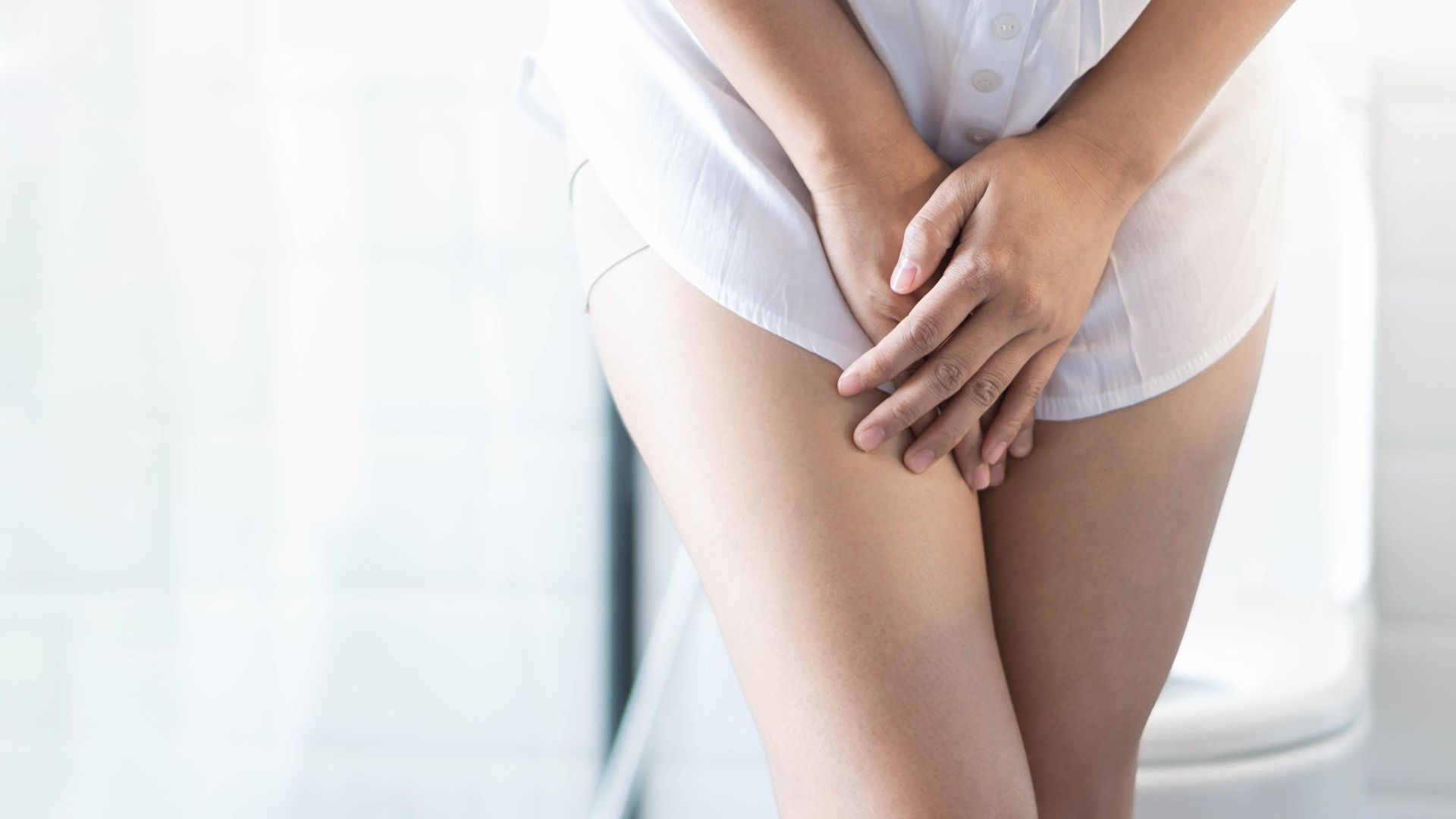
What Is Bladder Incontinence During Period?
Bladder incontinence during a period, also known as urinary incontinence, is when a woman experiences unexpected urine leakage while she’s menstruating. This issue can stem from various factors, including hormonal changes that occur during the menstrual cycle, which can affect bladder control.
The pelvic floor muscles, which support the bladder, uterus, and bowel, might also get weaker or be under more stress during this time, leading to episodes of leakage. It’s a condition that’s not only physical but can also bring about emotional distress due to its impact on daily activities and overall quality of life.
Causes of Bladder Incontinence During Period
There are two main reasons why you might experience bladder incontinence during your period, both related to changes happening in your body:

1. Hormonal Fluctuations: During your menstrual cycle, your hormone levels fluctuate. One key player is estrogen, which helps keep your pelvic floor muscles strong and supportive. When estrogen levels drop around the time of your period, these muscles can weaken. Weakened pelvic floor muscles have difficulty controlling your bladder, especially when there’s increased pressure in your abdomen. This pressure can be caused by things like coughing, sneezing, laughing, exercising, or even just standing for extended periods.
2. Period Products: In some cases, using tampons might contribute to bladder leakage. Tampons are inserted into the vagina, which sits right next to the urethra (the tube that carries urine from your bladder). While uncommon, tampons, particularly high-absorbency ones inserted too low, can put slight pressure on the urethra. This added pressure, combined with weakened pelvic floor muscles due to hormonal changes, can lead to leaks.
Other Possible (but less likely) Causes:

- Urinary tract infection (UTI): While UTIs are more likely to cause frequent urination and burning during urination, they can sometimes also lead to incontinence.
- Underlying medical conditions: In some rare cases, bladder incontinence during your period could be a sign of an underlying medical condition like pelvic organ prolapse (weakening of pelvic floor muscles that can cause organs to shift).
Bladder Incontinence Symptoms to Watch Out For
Bladder Incontinence During Periods can manifest in various ways. Knowing the symptoms can help you identify and manage the condition effectively:

-
Urinary Leakage: Accidental release of urine, ranging from small dribbles to complete emptying of the bladder.
-
Urgency: Sudden, intense urge to urinate that may be difficult to control.
-
Frequency: Needing to urinate more often than usual, even during the night (nocturia).
-
Incomplete Emptying: Sensation of not fully emptying the bladder after urination.
-
Urinary Tract Infections (UTIs): Recurrent UTIs may indicate underlying bladder issues.
-
Emotional Impact: Anxiety, embarrassment, or avoidance of social situations due to fear of leakage.
How To Manage Bladder Incontinence During Period?
Here are some effective strategies to manage bladder incontinence during your period:

1. Strengthen Your Pelvic Floor:
Kegel exercises: These exercises target your pelvic floor muscles, which play a vital role in bladder control. Regularly performing Kegels can significantly improve incontinence symptoms. Aim for several sets of Kegels (contracting and relaxing your pelvic floor muscles) throughout the day.
2. Bladder Training Techniques:
Timed voiding: This involves urinating on a schedule, even if you don’t feel a strong urge. Gradually increase the time between bathroom visits as you gain control.
Double voiding: After urinating, wait a few minutes and try to urinate again. This helps ensure your bladder is completely emptied and reduces the risk of leaks.
3. Lifestyle Modifications:
Maintain a healthy weight: Excess weight puts extra pressure on your bladder, worsening incontinence. Aim for a healthy weight through diet and exercise.
Manage fluid intake: While staying hydrated is important, avoid excessive fluids, especially diuretics like caffeine and alcohol, which can irritate your bladder and increase urgency.
Empty your bladder before bed and activities: Going to the bathroom before bed and before activities that might trigger leaks (exercise, going out) can help prevent accidents.
4. Dietary Adjustments:
Limit bladder irritants: Certain foods and drinks can irritate your bladder and worsen incontinence symptoms. Consider reducing your intake of coffee, tea, soda, spicy foods, and acidic fruits.
5. Menstrual Product Choices:
Experiment with different products: If you suspect tampons contribute to leakage, try switching to pads or a menstrual cup. Using lighter absorbency tampons positioned correctly can also help. Consider consulting a healthcare professional for guidance on choosing the right menstrual product for you.

6. Management During Periods:
Bladder liners: For light leaks, using pantyliners can absorb minor dribbles and provide a sense of security.
Double up on protection: During heavy flow days or activities that might trigger leaks, consider using both a pad or menstrual cup and pantyliners for added protection.
Frequently Asked Questions
How can bladder incontinence be managed during menstruation?
Managing bladder incontinence during menstruation involves paying attention to nutrition, staying hydrated, doing pelvic floor exercises, taking regular bathroom breaks, using absorbent products, and seeking medical advice. These strategies help effectively manage symptoms and maintain quality of life while dealing with bladder incontinence during periods.
Can bladder incontinence worsen during menstruation?
Yes, bladder incontinence can worsen during menstruation due to hormonal fluctuations and increased pelvic floor strain. Managing bladder incontinence symptoms becomes crucial during this time to minimize discomfort and inconvenience.
Are there specific exercises to help with bladder incontinence during menstruation?
Pelvic floor exercises, also known as Kegel exercises, can help strengthen the muscles that control urination, thereby improving bladder control and reducing incontinence episodes during menstruation. Consistent practice of these exercises is beneficial in managing bladder incontinence symptoms.
I am a medical student with experience and interest in Women’s health and well-being.